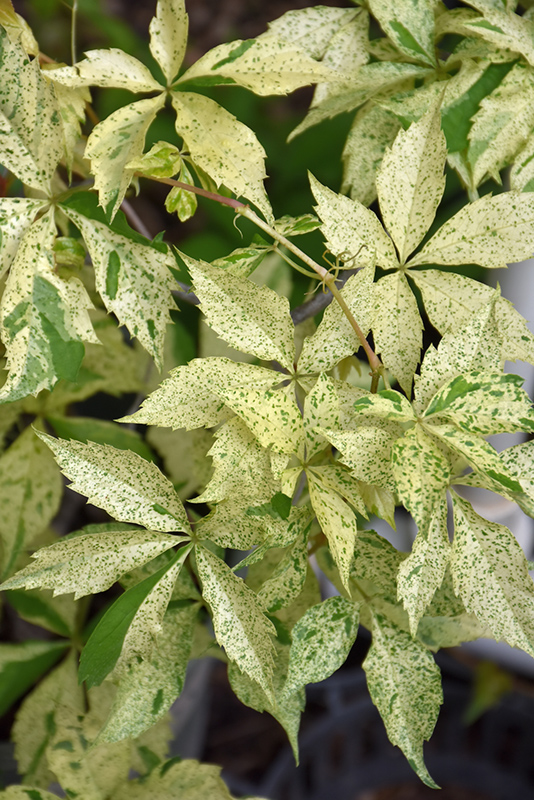Star Showers Virginia Creeper
Parthenocissus quinquefolia 'Star Showers'
Height: 40 feet
Spread: 24 inches
Sunlight:
![]()
![]()
![]()
Hardiness Zone: 4
Other Names: Woodbine
Description:
A new variant on this popular vine featuring five-lobed leaves splashed with creamy white for a stunning effect, excellent along fences and arbors, up the sides of houses or climbing trees; variegation may not be stable, less vigorous than the species
Ornamental Features
Star Showers Virginia Creeper has attractive white-variegated green foliage on a plant with a spreading habit of growth. The serrated palmate leaves are highly ornamental but do not develop any appreciable fall colour.
Landscape Attributes
Star Showers Virginia Creeper is a dense multi-stemmed deciduous woody vine with a twining and trailing habit of growth. Its average texture blends into the landscape, but can be balanced by one or two finer or coarser trees or shrubs for an effective composition.
This woody vine will require occasional maintenance and upkeep, and can be pruned at anytime. It is a good choice for attracting birds to your yard, but is not particularly attractive to deer who tend to leave it alone in favor of tastier treats. It has no significant negative characteristics.
Star Showers Virginia Creeper is recommended for the following landscape applications;
- Hedges/Screening
- General Garden Use
Planting & Growing
Star Showers Virginia Creeper will grow to be about 40 feet tall at maturity, with a spread of 24 inches. As a climbing vine, it tends to be leggy near the base and should be underplanted with low-growing facer plants. It should be planted near a fence, trellis or other landscape structure where it can be trained to grow upwards on it, or allowed to trail off a retaining wall or slope. It grows at a fast rate, and under ideal conditions can be expected to live for approximately 20 years.
This woody vine performs well in both full sun and full shade. It prefers to grow in average to moist conditions, and shouldn't be allowed to dry out. It is not particular as to soil type or pH. It is highly tolerant of urban pollution and will even thrive in inner city environments. This is a selection of a native North American species.

